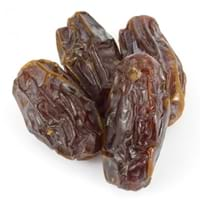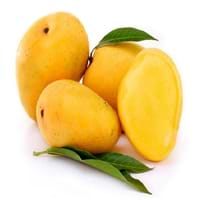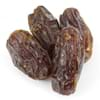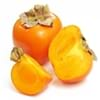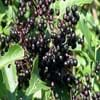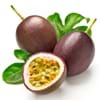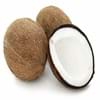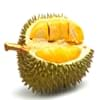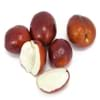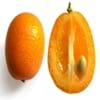Health Benefits
Cancer prevention, Cures gastro-intestinal troubles, Diarrhea treatment, Heart care, Heat stroke treatment, Improves muscular strength, Prevents constipation, Prevents nerve damage, Strengthening of bones
Cancer prevention, Cures fatigue, Heart care, Prevents strokes
General Benefits
Boosts immune system, Maintains healthy cholesterol level, Strengthens bones
Anti oxidant properties, Boosts immune system, Controls blood pressure, Digestive aid, Improves eye vision, Maintains healthy cholesterol level
Skin Benefits
Anti-aging benefits, Brightens and lightens complexion, Reduces wrinkles, Treatment of skin diseases
Anti-aging benefits, Brightens and lightens complexion, Skin cleansing, Skin rejuvenation, Treatment of acne, Treatment of blackheads, Treatment of dark spots
Hair Benefits
Prevents hair loss, Promotes longer and healthier hair, Protects hair, Regulates hair growth
Good conditioner, Prevents hair loss, Treatment of dandruff
Allergy Symptoms
Redness of eyes, Runny nose, Sneezing, Watery eyes
Abdominal pains, Breathing difficulty, Diarrhea, Runny nose, Sneezing, Swelling of mouth, tongue or lips, Watery eyes
Side Effects
Allergic reaction, Diarrhoea, Intestinal gas, Stomach pain, Tooth decay, Weight gain
Increase in blood sugar level, Diarrhoea, Weight gain
Best Time to Eat
Any time except an hour after meal, Don't consume at night and before bed
Don't consume at night and before bed, Eat the fresh ones, avoid mixing with any other foods, don't eat after meal., Morning time (before lunch)
Vitamin B5 (Pantothenic Acid)
Vitamin C (Ascorbic Acid)
Vitamin K (Phyllochinone)
Calories in Fresh Fruit with Peel
Not Available
Calories in Fresh Fruit without Peel
Not Available
Calories in Frozen Form
Not Available
Calories in Canned Form
Not Available
Season
Spring, Summer
Spring, Summer
Varieties
Barhi, Dayri, Deglet Noor, Halawy, Khadrawy, Medjool, Thoory and Zahidi
Alphonso, Valencia Pride, Badami, Chaunsa, Nam Dok Mai, Glenn, Sindhri, Madame Francique, Kesar and Keitt
Color
Black, Brown, Red, Yellow
Orange, Red, Yellow
Inside Color
Brown
Yellow
Origin
Iraq
Southern Asia
Soil Type
Clay, Loam, Sand
Clay, Loam, Sand
Climatic Conditions
Hot, Warm
Humid, Warm to hot climate
Facts about
- Date is known as the tree of life in Middle east.
- Date palms cover 3% of the earth's total farmlands.
- Scholars believe that date (and not apple) was the real fruit mentioned in the Bible's Garden of Eden.
- A mango tree can bear fruits even after the age of 300 years.
- Height of a mango tree can be as high as 100 feet.
- In India, mango is known as a symbol of love. Also, a mango basket is considered as the sign of friendship.
Spirits
Not Available
Yes
Cocktails
Not Available
Yes
Other Countries
Algeria, Iraq, Oman, Pakistan, South Africa, United Arab Emirates
Bangladesh, Brazil, China, Indonesia, Mexico, Nigeria, Pakistan, Philippines, Thailand
Top Importer
India
United States of America
Top Exporter
United Arab Emirates
Mexico
Botanical Name
Phoenix Dactylifera
Mangifera Indica
Synonym
Not Available
Not Available
Subkingdom
Tracheobionta
Tracheobionta
Division
Magnoliophyta
Magnoliophyta
Class
Liliopsida
Magnoliopsida
Subclass
Arecidae
Rosidae
Order
Arecales
Sapindales
Family
Arecaceae
Anacardiaceae
Species
P. dactylifera
M. indica
Generic Group
Palm
Cashew
Difference Between Date and Mango
We might think that Date and Mango are similar with respect to nutritional value and health benefits. But the nutrient content of both fruits is different. Date and Mango Facts such as their taste, shape, color, and size are also distinct. The difference between Date and Mango is explained here.
The amount of calories in 100 gm of fresh Date and Mango with peel is 282.00 kcal and Not Available and the amount of calories without peel is Not Available and 60.00 kcal respectively. Thus, Date and Mango belong to High Calorie Fruits and Low Calorie Fruits category.These fruits might or might not differ with respect to their scientific classification. The order of Date and Mango is Arecales and Sapindales respectively. Date belongs to Arecaceae family and Mango belongs to Anacardiaceae family. Date belongs to Phoenix genus of P. dactylifera species and Mango belongs to Mangifera genus of M. indica species. Beings plants, both fruits belong to Plantae Kingdom.
